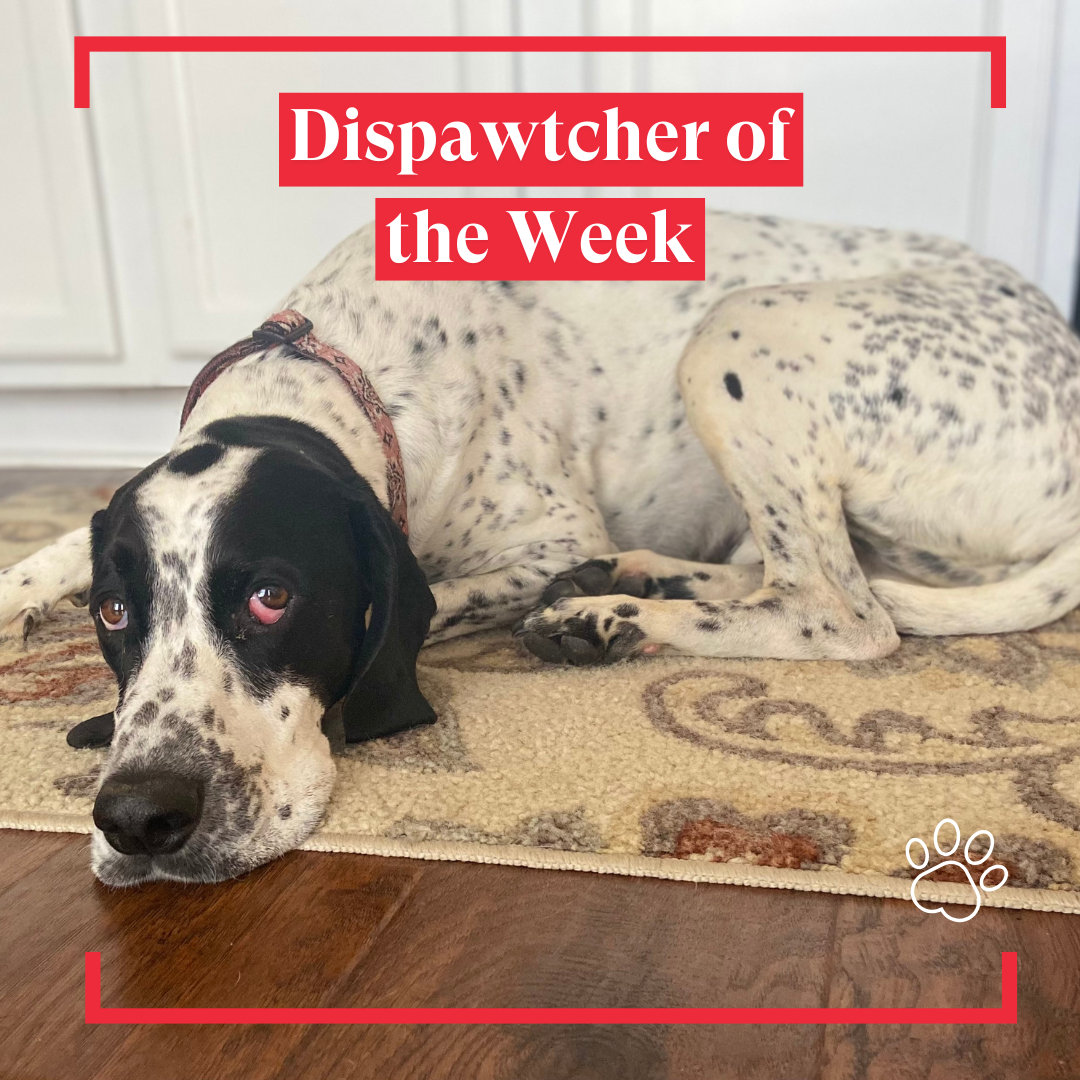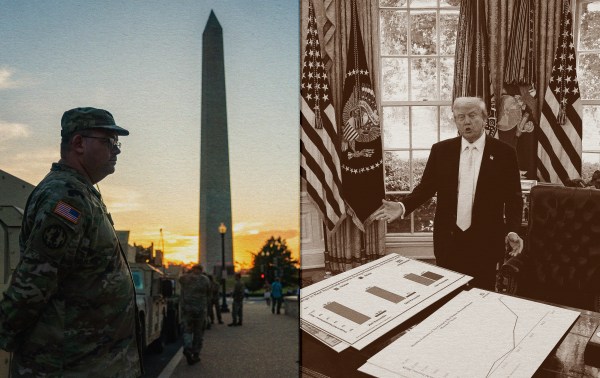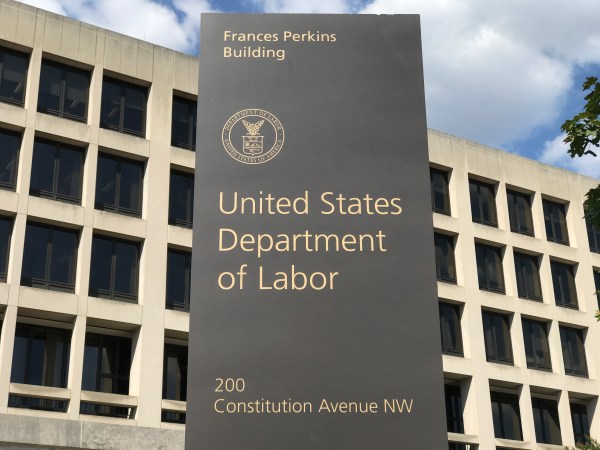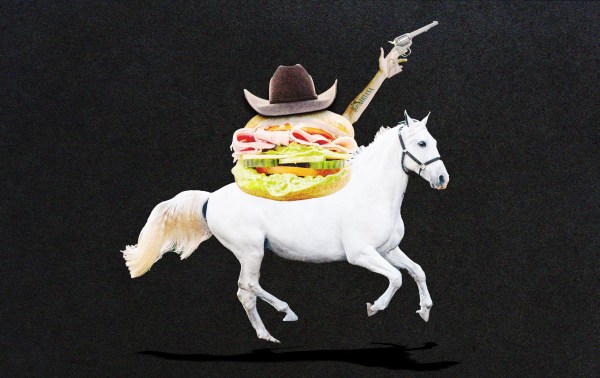Dear Reader (eh?)
I’m in Sister Bay, Wisconsin.
It is cold here. Angry cold. The wind off the water grabs you—well, me—like a doctor pulled his hand out of an ice bucket right before he told me to turn my head and cough.
We’re here because, well, we like it here. Or to be more specific, we liked it here at the tail end of the summer and we thought it might be a fun adventure to come here in the winter. Alas, there’s no snow to do most of the things I was planning to come with an excuse not to do. I am no big fan of cross-country skiing. It’s like someone issued a challenge to “invent a sport with all the heart attack risk and drudgery of shoveling snow with none of the thrills of downhill skiing.”
But I do like snowmobiles, which I am required to call “snowmachines,” because that’s what they call them in Alaska, and my wife refuses to acknowledge they have any other name. I remember the first time I asked her, “Well, if that’s the case, what do you call the machines that make snow in Alaska?”
She was like, “Why would you make snow in Alaska?”
Anyway, as longtime readers know, this is not the only area where I’ve internalized my wife’s worldview. Most famously, she has persuaded me that bears are ferocious killing machines (maybe we should call them killing mobiles in the lower 48?), albeit with terrific packaging and marketing. If grizzlies were reptilian and slimy, or looked like former Rep. Henry Waxman, but had all of the same behaviors—eating the faces of hikers, selectively consuming only the tasty bits of other mammals (I’ll spare you the details), using some of our greatest national parks and forests as an open-air sewer—we would have resolved to eradicate them a long time ago. But because they’re cute and snuggly-looking, we turn them into cartoon characters and stuffed toys. Hence, TFJ’s long-standing opposition to all forms of “bear propaganda.”
That even goes for pandas. They are not particularly dangerous, but it seems kinda obvious that if left to their own devices, the Triscuit-cracker-pooping critters would have gone the way of the dodo a long time ago. “Too cute to live,” as she often says when I show her videos of pandas falling out of tire swings, no doubt installed by Chinese slave labor.
Canada, vaguely.
But the most relevant issue—at least for today’s “news”letter—where she had the most influence on me is, of course, Canada. My late sister-in-law Paulie coined a term I’ve used since I first heard it 20 years ago: “vaguely Canadian.” It was her observation that whenever you get, say, cold cuts or fast food in Canada, it just tastes slightly off or not quite right. It didn’t take long for the Fair Jessica to start describing American things that tasted off, wrong, or iffy “vaguely Canadian.”
Since then, I’ve done a lot of writing about and some travel in Canada. I can even sense, right now, that I am nearer than normal to Canada here in northern Wisconsin. Like the scrotal-constricting north wind coming off the water, there’s a vaguely Canadian vibe washing down upon me. It’s sort of like that tingly sensation you imagine you feel when standing too close to the microwave. Your brain says, “It’s probably fine,” but your gut asks, “Where did I put my tinfoil codpiece?”
The biggest influence my wife had on my thinking about Canada was to, well, think about it at all.
Most Americans don’t think about Canada. Every now and then someone will tell you, “Did you know so-and-so is from Canada?” The shock varies by the specific celebrity. The scale runs from 1 (about the equivalent of finding out someone is left-handed) to 5 (learning that a modestly overweight person you know from work was skinny in high school) to a 10 (discovering you have the same name as someone who was semi-famous in the 19th century). In other words, interesting but not really interesting enough to change your day. Not interesting-interesting, just Canadian interesting.
And, weirdly, that’s what makes Canada interesting to me. You’ve probably heard me do my riff on Seymour Martin Lipsett’s take on how Canada illuminates American exceptionalism. At the time of the American Revolution, there were 26 colonies, but only 13 of them rebelled. The other 13, many of which were in what is today called Canada, stuck with the king. Loyalists and royalists either moved north of the border or stayed there. Freedom-loving badasses with super-sized cupholders in their buckboard wagons moved in the other direction. And 200 years later, when both governments told their citizens to switch to the metric system, the Canadians said, “Okay.” The Americans, to the extent they even noticed, laughed, and said, “Yeah, no. That’s not happening.”
Just different enough to notice.
There are vast swaths of sci-fi dedicated to multiverse-style, “What if?” questions. In “A Sound of Thunder,” Ray Bradbury sends time-traveling hunters on a safari 65 million years ago to bag a T-Rex, but because someone steps on the wrong blade of grass, the America they return to is fascist, English words are spelled phonetically, and everyone wears their underwear outside of their pants, except for people named Todd (if my memory is right). Spock has a goatee, Captain Kirk is evil, Thor is a chick, Howard the Duck tastes like chicken, Rod Serling offers a lot of exposition straight to camera, etc.
In most of these stories, things are really different. But in Canada, they’re only a little different. They’re … vaguely Canadian. The Montreal bagel is actually quite good, it’s just a little different than the bagel as God intended. Canadian children’s shows aren’t that different from the usual PBS garbage, though Calliou does seem like what you would put on while waiting for the sedative(s) to take effect. Canadian movies are like American movies but with the budget, production value, and edginess of Hallmark Channel movies. Heck, Canada is so close to being America, we film a lot of our movies there because it looks slightly more realistic than the fake New York City set they used in Friends. Occasionally, you’ll be like “Wait, that subway isn’t in America!” or “Why are all the cops wearing yellow safety vests?”
In other words, it’s different, just not different enough to be really interesting—to Americans. I mean the differences between North Korea and South Korea are frick’n interesting. In the Hermit Kingdom, there’s serfdom, castes, and a hereditary monarchy. Denim is banned. Criminal punishments can be imposed generationally: If you rip off a mattress tag, your kids and grandkids can be sentenced to hard labor. Kim Jong Il’s PR team once claimed that his body was so perfectly efficient he didn’t need to poop or pee—ever. Nothing that interesting has ever been said by or about Justin Trudeau.
Of course, you can’t tell Canadians any of this. They think the differences between the U.S. and Canada are massive. If you’ve ever backpacked in Europe, you know that only vegans and atheists are quicker to explain their identity to you. If you call one an “American”—or even just ask them, “Hey, are you American?”—the response arouses an outrage on par with misgendering a trans activist or calling an Ohio State football fan a Michigan fan. Oh, there’s a variety of responses you might get. There’s the Nova Scotia sad frown, the Vancouver eye roll, and of course the Toronto tantrum: “The United States isn’t the only country in ‘America!’ You know that, right? RIGHT!?”
It’s literally true that some of the funniest people in America grew up in Canada (that’s because they grew up watching our TV shows and movies from just outside the fishbowl, building up their “did you ever notice?” powers of observation). So, I’m not saying Canadians don’t have, or can’t have, a great sense of humor. I’m saying Canadians, as a group, don’t have a sense of humor about themselves as Canadians.
Actually, I might not even go that far. For all I know, if a Brit or Australian made fun of Canadians, the Canucks might laugh their asses off. But they just have no patience for American jokes about Canada (a fact I’ve learned the hard way). The old cliché is that the opposite of love isn’t hate, but indifference. Well, to the extent Canadians hate Americans, it’s because we just don’t care. And that’s infuriating. The U.S.-Canada rivalry is like the great Cornell-Harvard rivalry that everyone at Cornell knows about and nobody at Harvard has ever heard of.
Canada’s political culture was fundamentally founded on and continues to revolve around anti-Americanism. Like Glenn Close in Fatal Attraction, they fume, “I’m not going to be ignored!” And if we respond at all, it’s to say, infuriatingly, “Huh? Did you say something?”
As the Canadian journalist and author Frank Underhill (who’s still trying to figure out where these charges on his tab are coming from) wrote, the Canadian “is the first anti-American, the model anti-American, the archetypal anti-American, the ideal anti-American as he exists in the mind of God.”
I dunno. Maybe the God Underhill had in mind was the New Testament God, the one of love and cheek-turning. But that’s not even right. Maybe it was a unitarian God, after review by the Diversity, Equity, and Inclusion task force. Because there’s nothing Old Testament about Canadian anti-Americanism, or Canada at all. They’re just too polite.
Yes to Canadian annexation.
Which brings me to the politics stuff.
I don’t particularly love all of Donald Trump’s mockery of Canada. Trolling Trudeau is fine with me. He’s like someone asked an AI 3D printer, “Make me a Gavin Newsom with 50 percent less testosterone.”
But Canada is, in fact, a relatively important ally and trading partner, and an incoming president crapping on it is like smushing an ice cream cone in an Amish dude’s face or cursing out the Dalai Lama. Of course you can get away with it—which is why you shouldn’t do it in the first place.
But when I set out to write this, I’d planned on picking a fight with my friend and old boss Rich Lowry. He thinks that even if Canada was willing to become part of America, we shouldn’t want it because the Canadians are poorer than us and have bad politics.
I understand Rich is being more than a little glib and tongue-in-cheek. But he’s just obviously wrong. If we can get our hands on Canada, we should jump on the opportunity.
“The United States doesn’t need another huge, misgoverned blue state,” Rich writes. “We already have California, where the climate and the surfing are better.”
Again, I get the joke. But on the off-chance others don’t, this is nuts. California, for all of its problems, isn’t a loser for America because it’s misgoverned by America’s slightly edgier Justin Trudeau. On its own, California would be the fifth-largest economy in the world, makes up almost one-sixth of the U.S. GDP, and is—by far—the biggest contributor to federal coffers.
My only point is that, even rhetorically, saying we don’t need another California makes it sound like California is dragging us down. It’s not (at least not in the obvious ways).
Now, Rich is absolutely right that Canada is comparatively poor. “Why,” he asks, “would we make Canada’s scuffling economic performance our problem?”
Um, for starters because God ain’t making any more real estate. The place is full of natural resources. Canada is the fourth-largest oil producer in the world and has massive deposits of rare earth minerals. It has the most coastline of any country, including the largest arctic coastline.
But Rich suggests that none of that matters when weighed against the fact Canadians disproportionately liked Kamala Harris or that if we absorbed French Canada, we’d have to appuyez sur trois pour le français. I mean I get disliking bilingualism, but if Paris was worth a mass, then Montréal is worth some ribbits.
Maybe Rich is trying to warn Trump off this idea by taking Canadian statehood more seriously than it deserves. But on the merits, it’s obvious to me that if we could peacefully incorporate Canada into America, we should. The Canadians would be smart to join America, but taking it as one state would be a bad idea for everyone. Yes, it would probably guarantee two Democratic Senate seats, but it would also guarantee only two Senate seats. Breaking up Canada into 10 states—one for each province—makes more sense to me.
But my real objection to Rich’s objection isn’t materialist, but patriotic. First of all, the American Revolution should be considered unfinished business so long as the king of England remains the official head of state of our northern neighbor. Finish the job!
Moreover. Rich writes, “We might think we’d annex Canada and make it more like us, but — with two Democratic senators and a huge tranche of electoral votes for Democratic presidential candidates — Canada would surely make us more like it. In that sense, the joke would definitely be on us.”
The idea that annexing Canada would obviously Canada-ify America, rather than Americanize Canada, strikes me as not only absurd but insulting to Canadians and Americans alike. I think it also wildly overstates the power and importance of partisan politics to change the culture.
I bet a lot of Canadians would love to have a more dynamic economy where their talents and energy could be put to more productive use. I think a lot of residents of former provinces would identify more with neighboring states to the South than with the progressive politics of Ottawa and Toronto. The idea that American Asians, blacks, and Hispanics can move into the Republican fold (as they did in 2024) but newly American Albertans and Manitobans would be forever beyond the GOP’s reach seems implausible to me.
I could go on about Lowry’s Folly, but I should finish with a nice word about the Canadians. Making America a little more like Canada wouldn’t be such a bad thing, would it? I mean, it depends in what way. But Canadians are definitely nicer and more polite than Americans. Would that American politics got a little vaguely Canadian, at least in that regard.
Various & Sundry
Canine Update: So this has been a heady few days for Zoe and Pippa. (Gracie is being well-attended to back home. I made sure to water her before leaving.) The sad news is that Zoë just doesn’t like RVs much. She likes the road. She just doesn’t like riding on the road in anything other than a car. We don’t really know why, but we suspect it’s because it’s hard to look out the window the way she likes and, more relevant, it feels not very secure. So she is kind of grumbly and reluctant to get in the van. She loves exploring new neighborhoods, chasing critters that never dreamed a dingo was in their destiny, and she likes running down hotel hallways for some reason. So does Pippa. But vans, not so much. And the stress of being in the van makes her a bit sad. What she really loves, I’ve come to realize, are college campuses. She loves them. They’re like giant suburban backyards—which she also loves—and there’s just something about the smells, the ability to see great distances, etc. that get her excited. Yesterday, I took them for a long adventure on the completely empty Notre Dame campus (it was like the canine equivalent of the Doolittle raid on the post-liberals).
In other developments, we got Pippa a coat. She’s fine with it. But special booties are a bridge too far. I wish I got in on video, since it was the first and last time anyone will put boots on her. She hates them. She walked around the house half like the floor was lava half like small bitey lizards were attacking her feet.
The Dispawtch

Owner’s Name: Rebecca Duran
Why I’m a Dispatch Member: I needed some media political sanity in 2016. Plus, I’ve been a Jonah fan for way too many years.
Personal Details: I’m a faux Southern belle/empty nester/young retiree in perpetual, strangely satisfying (yet not existential) angst while mumbling daily “All Will Be Well” and sometimes actually believing it.
Pet’s Name: Opie
Pet’s Breed: English Pointer
Pet’s Age: 12 on Valentine’s Day.
Gotcha Story: My husband had two etched-in-stone wife directives: no motorcycle (father of five) and no dog (mother of five, aka caretaker for all small yappy creatures). We can guess the rest of the story: The motorcycle came first, and the unexpected pup came next. The five kids love Opie as a furry sibling, and I have grown to love him as much as my former husband. Ok, maybe maybe more. Don’t judge.
Pet’s Likes: Proving the adage of strangers being friends you’ve never met, rolling in mud, leftover take-home bones from steak houses, hanging with his stuffed animal doppelgänger Lil Opie, squirrel and deer reconnaissance resulting in a mood-dependent chase.
Pet’s Dislikes: Being mistaken for a large bird dog when he’s convinced he is a friendly 8-year-old boy.
Pet’s Proudest Moment: Finishing four whole uncooked ears of corn that required an emergency vet visit.
Moment Someone (Wrongly) Said Pet Was a Bad Dog: When he finished four whole uncooked ears of corn and miraculously evaded emergency surgery.
Do you have a quadruped you’d like to nominate for Dispawtcher of the Week and catapult to stardom? Let us know about your pet by clicking here. Reminder: You must be a Dispatch member to participate.








Please note that we at The Dispatch hold ourselves, our work, and our commenters to a higher standard than other places on the internet. We welcome comments that foster genuine debate or discussion—including comments critical of us or our work—but responses that include ad hominem attacks on fellow Dispatch members or are intended to stoke fear and anger may be moderated.
With your membership, you only have the ability to comment on The Morning Dispatch articles. Consider upgrading to join the conversation everywhere.